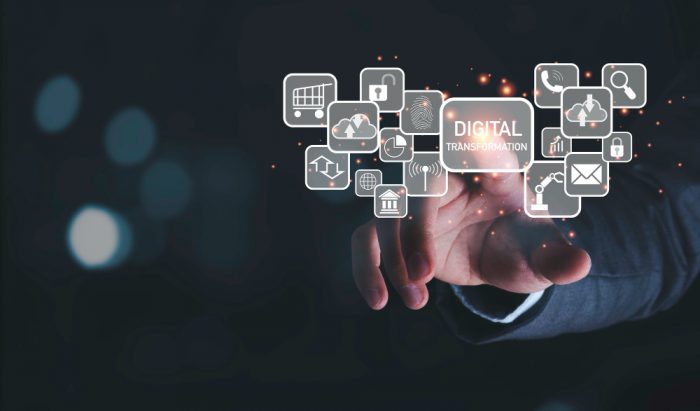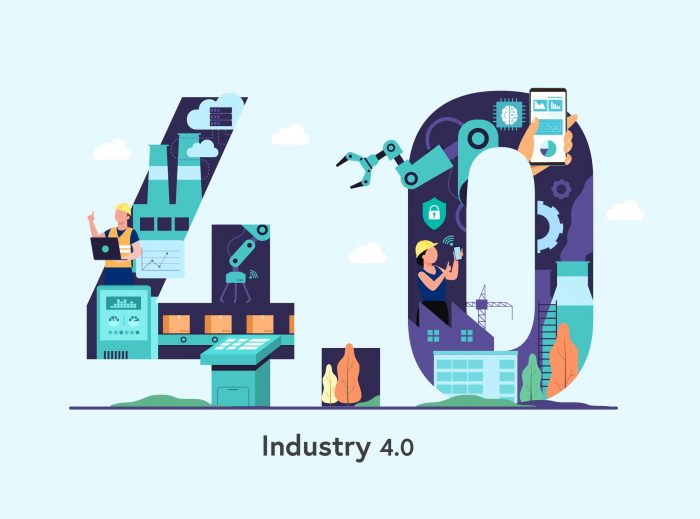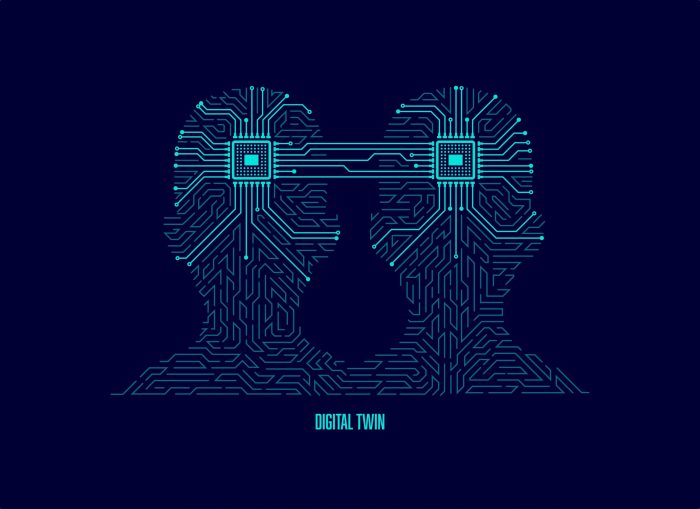Top Digital Technologies to Rule in the Healthcare domain
Audio : Listen to This Blog.
Digital transformation has become an essential part of all organizations as digitalization paves the way for new production methods, marketing, sales, and delivery, highly efficient than before. Right from enterprise e-commerce to the food industry and much more, digital transformation leaves no industry untouched. Thus, digital Transformation in Healthcare shouldn’t be surprising. Still, it is a matter of fact as technology can increase the accuracy and precision with which medication is done by minimizing human errors to the maximum level possible. There are numerous other benefits of digital transformation in healthcare, and here are the top digital technologies that can render these benefits, when opted.
Table of Contents
Top Digital Transformation Technologies
-
Artificial Intelligence (AI) in healthcare
AI development services are one of the tops of the top Technologies that finds its use in almost all the fields. In the same way, artificial intelligence has helped the medical field to the greatest extent by rendering some of the greatest benefits ever in history.
Firstly, Artificial Intelligence in healthcare has increased the efficiency of body scanning by 150 times, and it is able to identify all neurological events accurately in less than 1.5 seconds. Similarly, AI companies helped to tap into the potential of AI, which has contributed to reducing the waiting time for patients to obtain reports of scanning.
Meanwhile, artificial intelligence personal assistant apps and devices would also alarm in case of emergency and guide the right first aid methods, like in defibrillators. The utmost importance of artificial intelligence lies in offering the decision making data, saving a significant amount of operational costs, and enhancing the amount of security given for patients’ data.
-
Machine learning in healthcare
Machine-learning algorithms are one of the most important technologies that are manipulated and modeled accordingly for a wide variety of healthcare applications.
Machine learning in medicine is crucial in maintaining records of patients’ data, managing, and exchanging the information when required. Similarly, medical imaging and diagnostics have reached great heights with machine learning.
Additionally, the benefits of machine learning in healthcare have aided in very accurate research, even in quantities of micro molecules. Thus drug discovery and management, treatment, and prediction of diseases have become less stressful for the physicians.
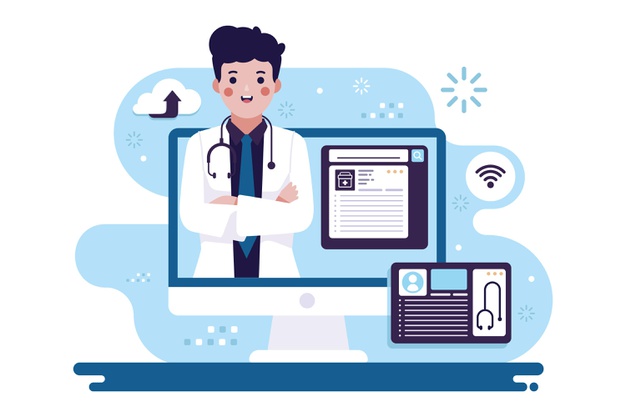
Most importantly, machine learning applications also offer a complete and detailed analysis of the patients, and thus more personalized treatment for every patient becomes possible. For instance, top companies using machine learning include Microsoft – Microsoft’s Project InnerEye uses machine learning for generating three-dimensional images, which rightly spots the exact location of tumors.
This sort of ML healthcare project assists the medical practitioners in surgical planning and radiotherapy to excel in offering the right surgeries, treatment at the right time, which aid in the best results.
-
Augmented reality
AR/VR development is one of the top technological trends that are hot in and around the world today.
Augmented reality has two key differences from VR.
- Firstly, AR doesn’t completely immerse but just adds virtual elements to reality.
- Secondly, all the information is given at eyesight as far as possible with the help of AR.
These two are the key factors behind the humongous impact of AI in healthcare. The stride AR has made in healthcare is too powerful – it aids the training surgeons to have an idea of operations and scaling up one’s skills personally.
The vibrant use of AR is already seen in the case of the usage of Microsoft HoloLens by Case Western Reserve University students to have a greater and very clear idea of anatomy – especially the exact and right visual of how a drug would interact with cells in the body, etc.
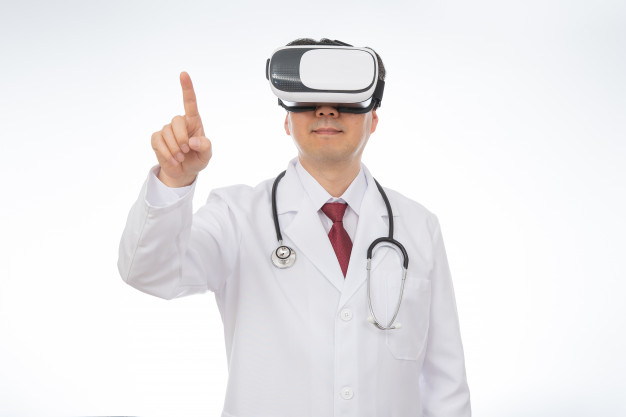
To add to the cream, every AI Development Company aims to blend AI and augmented reality, which has rendered phenomenal results – defibrillators are the finest example.
Similarly, AR has guided the practitioners to access data about the patients readily with AI and helped the nurses rightly spot the veins where injections are to be injected.
These have contributed very positively, wholly to the entire medical stream, where technology has integrated with innovation and service.
-
Virtual Reality
Virtual reality largely helps in training future physicians. For example, a surgeon under a housing or training period can actually have a complete immersive idea of even the most complex surgeries, with VR’s help.
Read More : “Digital Transformation in Healthcare Industry“
Like the surgeons, VR Technology also aids the patients to a great extent in reducing their stress in a treatment. For example, women are offered with VR headsets that can help them have appealing landscapes in the virtual world seen, divert the concentration from focusing on labor pain and help them be at ease.
Similarly, patients with cardiac pain, surgical pain, etc. have made the statement that they have had less pain while being immersed with VR.
-
Internet of things
IoT development services are some of the major contributors to the healthcare system, especially in the digital transformation industry sphere.
IoT contributes to the development and enhancement of many important segments inside the healthcare field, like medical staff deployment, tracking devices, etc.
An IoT development company would help these areas tide smoothly through this process – an integrated system is developed to continuously check the patients’ health, with a set of equipment like defibrillators, oxygen pumps, wheelchairs, and various other devices, in the first place.
Secondly, as the name, “Internet of Things” indicates, every object and device is connected with a system of sensors through the internet. Thus, locating these pieces of equipment is very easy, and this would ensure that a lot of time is saved than locating these when in need.
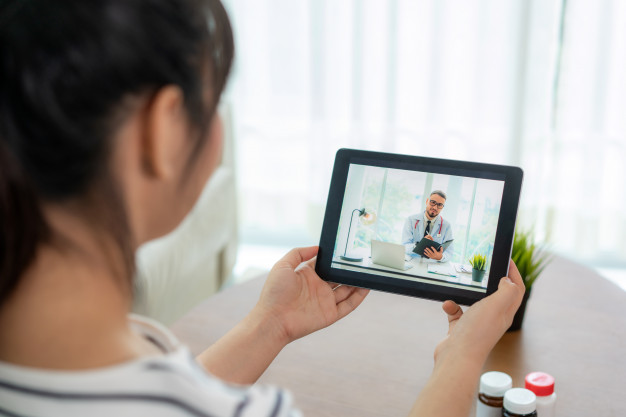
Additionally, inventory management, the ideal environment to manage that equipment are all also rendered via the sensor systems. Then, since all the hospital and healthcare unit conditions are constantly monitored with IoT, any emergencies at any portion can be easily located, and the staff required to support can be deployed accordingly.
The very core aspect in and around the hospitals is to break the chain of infectious nature of the spread of disease, and IoT makes this possible.
This is really amusing, and a boon to the healthcare system as the hygiene fostering devices are all integrated with a single system that can prevent the disease from spread to healthy ones.
-
Nanotechnology
Our science has advanced so much to facilitate even the studies about the smallest of molecules existing on earth, which is possible with cutting edge technologies like nanotechnology.
Finding their uses in various platforms, the nanoparticles and devices would be used in healthcare extensively, to traverse through the bloodstream, in the body, and can rightly attack the cancer tumors or carry out very precise and technically and medically complex surgeries.
These particles, devices pills that are in track in healthcare since 2014, have grown to such an extent that, in 2018, nano – pills that can respond to smartphone commands were developed, which was one of the milestones in mobile health technologies.
Their uses have extended to monitoring of healing processes whereby the smart patch of these particles is demonstrated.
Read More : “Digital Transformation in Healthcare – II [Updated 2020]“
Thus, a benchmark time where nanotechnology would rule the health care industry and mobile healthcare technologies is widespread with its golden future would be seen near future.
Final Verdict
Healthcare is an everlasting and important sector as long as humanity thrives. Bringing in the optimal amount of technology at the exact time in the right form can do wonders and cause more positive differences in many lives. The present technologies that have boosted the healthcare industry and that are believed to rule in the near future areas aforementioned. Every medical segment, private and public, can hire service providers accordingly and reap the benefits of the same.
FAQ's
Mobile healthcare is a growing reality, and astounding initiatives like electronic nano – pills that can be controlled via smartphones have already set the base for it. Thus, it would be very significant when apps are developed for healthcare with the right theme and accuracy and should be feasible for all.
Self kiosks are electronic machines that can function as a check-in platform fr patients in medical health care units, hospitals, and doctors’ offices. Even some of the kiosks can perform tasks like basic tests of diagnostics, all of which reduces the waiting time for patients.
It’s highly safe to rely on it as long as the right practitioners handle it. It can be the solution to several non-reversible injuries saving a lot of lives.

